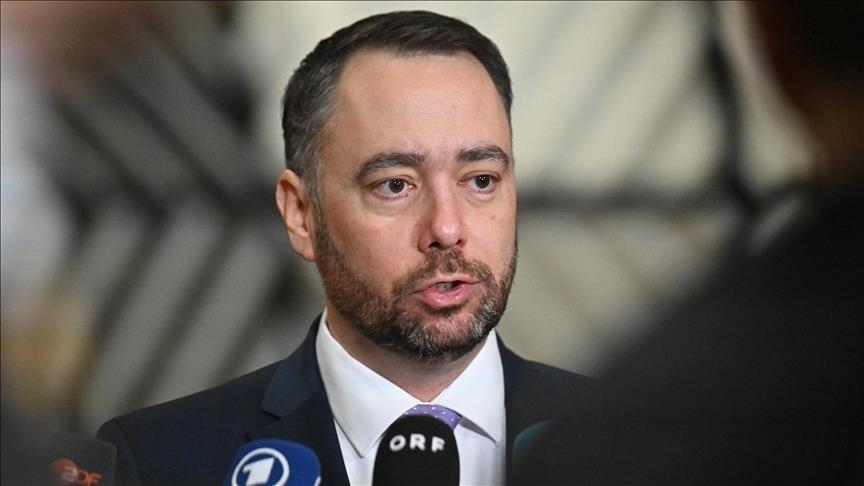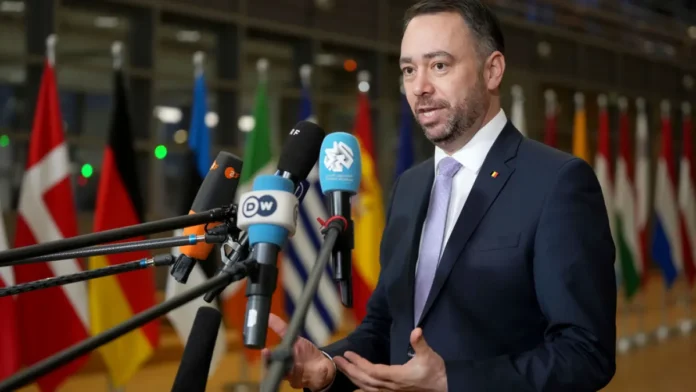Historic Diplomatic Shift
Belgium has announced it will formally recognize the State of Palestine during the United Nations General Assembly later this month, while also imposing a package of 12 sanctions against Israel. The decision, revealed by Foreign Minister Maxime Prévot on Tuesday, marks one of the most significant moves yet in Europe’s shifting approach to the ongoing Gaza conflict.
“Palestine will be recognized by Belgium at the UN session! And firm sanctions are being imposed against the Israeli government,” Prévot wrote on social media platform X. The UN General Assembly is scheduled from September 9 to 23 in New York.
The announcement places Belgium among a growing coalition of Western nations pushing for Palestinian statehood recognition as violence in Gaza intensifies and international scrutiny of Israel’s military campaign deepens.
A Growing European Coalition

Belgium’s recognition aligns with a wider European initiative led by France, which declared in July its intention to recognize Palestine during the same UN session. France’s commitment carried symbolic weight as it became the first G7 member and permanent UN Security Council state to pledge recognition. French President Emmanuel Macron described the move as essential to preserving the viability of a two-state solution.
According to reports, more than a dozen Western nations—including the United Kingdom, Canada, Malta, and Australia—are preparing to recognize Palestine as well, though some attach conditions such as security guarantees for Israel or Hamas’s disarmament.
Analysts say the trend reflects mounting frustration over what many governments describe as “unprecedented levels of civilian suffering” in Gaza. TRT World reported that growing recognition efforts stem from “deep international concern over what is widely seen as genocide.”
Details of the Sanctions Package
Alongside recognition, Belgium unveiled a 12-point sanctions package directed at Israel’s government and settlement infrastructure. According to BNO News and Belgian media, the measures include:
-
A ban on the import of goods produced in Israeli settlements.
-
Restrictions preventing Israeli companies linked to settlements from accessing Belgian government contracts.
-
Limits on consular support for Belgian citizens living in illegal West Bank settlements.
-
Travel bans targeting Israeli ministers and violent settler leaders.
Prévot’s 25-page memorandum also recommended blocking the transit of weapons through Belgian airspace and halting defense procurement from Israeli firms. The latter measure is notable as Belgium’s army recently purchased 100 tonnes of ammunition from an Israeli supplier.
The sanctions are described by officials as “firm but targeted,” designed to signal opposition to settlement expansion while avoiding direct harm to Israeli civilians.
Political Divisions in Belgium

The decision followed weeks of tense debate within Belgium’s coalition government. Prime Minister Bart De Wever of the nationalist N-VA party had pushed for conditions on recognition, including the release of Israeli hostages, Hamas disarmament, and security assurances for Israel.
Prévot, however, argued that waiting for perfect conditions was unrealistic. “Waiting for ‘the right moment’ and for ‘all conditions to be met’ for such recognition is insufficient,” he said. He warned that Belgium risked isolation if it failed to act alongside other European partners.
The government reconvened on September 2 to reach consensus, ultimately siding with the foreign minister’s position. Belgian officials acknowledged that divisions remain, but emphasized that the decision places Belgium firmly within the European mainstream.
Broader International Context
Belgium’s announcement comes against the backdrop of staggering casualties in Gaza. According to local health authorities, more than 63,000 Palestinians have been killed since Israel launched its offensive in October 2023, following Hamas’s cross-border attacks. The International Court of Justice (ICJ) is currently weighing a genocide case against Israel.
Adding to the pressure, the International Association of Genocide Scholars recently reported that 86 percent of its members believe Israel’s actions in Gaza meet the legal definition of genocide under international law.
Currently, 147 of the UN’s 193 member states recognize Palestine as a sovereign state. A coordinated European move could tip recognition close to a two-thirds majority, strengthening Palestine’s bid for full UN membership.
Diplomatic Implications
Foreign Minister Prévot stressed that Belgium’s actions target the Israeli government, not its citizens. “This is not about punishing the Israeli people, but rather about ensuring that its government respects international and humanitarian law,” he said.
Observers note that Belgium’s decision could strain bilateral relations with Israel but may also reinforce Brussels’ credibility in international diplomacy. The move underscores a growing divide between Washington, which remains firmly opposed to unilateral recognition of Palestine, and many European capitals seeking to accelerate peace efforts through diplomatic recognition and sanctions.
Looking Ahead
The UN General Assembly in September is expected to be a turning point in the international debate over Palestinian statehood. Should France, Belgium, and other Western countries proceed with recognition, the momentum could reshape the global diplomatic landscape, adding new urgency to stalled peace negotiations.
For Belgium, the decision marks one of its boldest foreign policy actions in recent years—balancing domestic political divisions, European solidarity, and international law. Whether the move accelerates progress toward a two-state solution or deepens divisions on the global stage remains uncertain, but Brussels has made clear that it no longer intends to remain on the sidelines.
Sources: Al Jazeera

